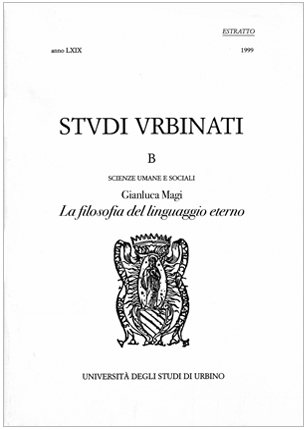
|
|
The philosophy of Eternal language
____________________________________________________________
in Pùrvamìmàmsà Sùtra of Jaimini, with a particular reference to the sixth topic of the «Reasoning section» (Tarkapàda)
Studi Urbinati, B, 1999 (LXIX),
pp. 59-76 (Extract)
____________________________________________________________
This essay, with a technical feature, focuses on a specific aspect of a Brahmanic school: the philosophy of the eternal language. The Mìmàmsà school elaborates a doctrine, which is a kind of comprehension of language as a reality, existing before the world structures, within a non-exemplaristic exposition, where sacrifice represents the constituent and essential modality of reality. The organization of this latter converges and adheres with the concept categories of sacrificial language, towards an active knowledge of the ritual ceremony.
The vision and the theory within this philosophical and soteriological school are particular: Veda have not been written by anybody, since they have an impersonal origin (apaurusheyatva). The self-revealing of the Indian sacred texts implies that the analysis of the Mìmàmsà school goes beyond the limits of the ordinary sensible experience, assuming a configuration of reality structured on a primordial interrelationship between word and sacrificial action (karma), that escapes from the common learning modalities.
The examination of these concepts is discussed in the first Section of Book 1 called «The reasoning Section» (Tarkapàda), section that is widely treated in this essay.
|